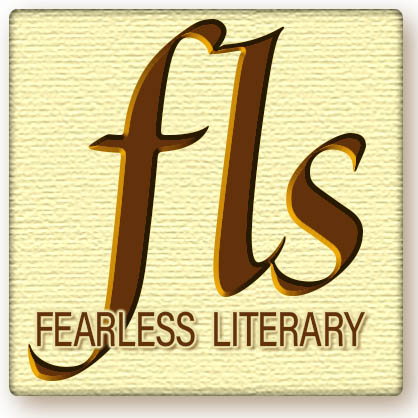
HOME • ASSISTED PUBLISHING • JOIN MAILING LIST
NEW FROM FEARLESS ASSISTED PUBLISHING
OUR BOOK:
An
After-Death
Dialogue
Mary Ann O’Neill’s husband Bill Journey died suddenly in 2022. Upon his death she discovered his long-term cyber emotional affairs, which led to a psychological crisis. The night after Bill died, he initiated a telepathic visit, which is called after-death communication (ADC). Is conflict resolution possible in ADC?
OUR BOOK is a documentation of the grief process integrating ADC with traditional trauma-based grief therapy and problem-solving through telepathy. Mary Ann O’Neill, EdD, earned her doctorate degree in counseling psychology from the University of San Francisco in 1984. She is a licensed Marriage and Family Therapist and a licensed Educational Psychologist with over fifty years of experience in clinical and educational settings. She lives in the San Joaquin Valley of California.
__________________________________________________
OUR BOOK
An After-Death Dialogue
by Mary Ann O'Neill and Bill JourneyPublished by the author in association with Fearless Literary
60 pages, trade paperback • $12.95 print, $7.95 digital • ISBN 979-8-218-62689-1


PRINT, KINDLE & NOOK


MORE DIGITAL FORMATS__________________________________________________
Preface
This book is a collaborative effort between myself and Bill Journey, my deceased husband. Upon my husband’s sudden death in 2022 and my discovery of his long-term involvement in cyber emotional affairs (which I called Cyber City), I found myself in a psychological crisis.
The night after Bill died, he initiated a telepathic visit, which is called after-death communication (ADC). It continues at the time of this writing. ADC is a component of psi, the modern term for the psychic functions of telepathy, clairvoyance, precognition, and psychokinesis, which are not recognized by my profession but were nevertheless core to my grief process.
Is conflict resolution possible in ADC? Was I psychotic? This led me to therapy and grief support groups. Although I received excellent trauma-based grief therapy, from competent supportive therapists, none experienced ADC or was familiar with the ADC research. Our Book is a documentation of my grief process integrating ADC with traditional trauma-based grief therapy and problem-solving through telepathy.
Part of my desire to write this book was to help others who are grieving and have ADC experiences and a difficult time finding a place to explore these experiences. I also want to educate those in grief and those who run grief groups or do therapy with grieving individuals to support discussion of these experiences.
Chapter 1
Memorial Service
Bill was the love of my life. He told me that I was his last wife and that he wanted to spoil me, and he did. Bill’s death was so sudden. Four days after his death, I became aware of his Cyber City life, my nickname for his online connections. Did his Cyber City relationships threaten his commitment to our marriage? Given all my inner turmoil and doubts, how could I plan and participate in his memorial service?
In the eulogy, I decided to focus on acknowledging the many components of Bill: Native American, friend, husband, father, step-father, brother, brother-in-law, uncle, cousin, welder-foreman, scientific aide, Bigfoot fan, flirt, and Spirit Bill. I included Flirt Bill especially, as many attendees were likely Cyber City recipients.
Friend: My former sister-in-law was a high school classmate of Bill’s. When I told her I was seeing Bill, she stated, “He is a really nice guy.” Most of the time, he was a really nice guy, genuine, fun, and a forever friend. Given his easy-going demeanor and openness, Bill was a magnet to many. He was especially connected to his high school classmates. Ongoing connections were consistently reinforced through frequent emails, texts, and quarterly luncheons. He was on the re-union committee and, with more access to his computer in retirement, his contacts increased. He took a lead role in organizing gatherings.
Flirt Bill: Bill’s flirt persona was well known. A friend shared: “Bill was a loving, flirtatious man who liked girls in skirts.” This persona blatantly manifested with some women in his romantic/sexualized comments. The messages frequently contained terms such as: squeeze, cute chick, foxy, hugzs, and multiple heart emojis. During the service, as this part was being read, my cousin spontaneously blurted out, in a laughing tone, “I thought I was the only one!”
Spirit Bill: Bill was a Native American; he believed in the Great Spirit, the spirit world, and reincarnation. The night after his death, I lay in our bed and noticed heat waves that descended down towards me. Upon contact, I heard Spirit Bill’s telepathic Thought-Voice (TV): “I am with family. You are OK. Listen to your heart. Follow your heart. I am here.”
As a psychologist, I had been taught that admitting my belief in after-death communication could be professional suicide, yet in my tribute to Bill, I wanted to acknowledge his ADC contact.
After the memorial service, around eighty people met at a lodge. I arrived later than most, as I had to pick up Bill’s ashes and personal memorabilia. When I arrived I was flooded with a constant stream of sincere condolences from so many dear people. Bill had many friends. He touched so many people in positive ways. In their condolences, the majority stated that the service was special, in particular the crystal bowl meditation.
Not one person commented on Spirit Bill. The lack of Spirit Bill feedback made me paranoid regarding possible perceptions of my ADC: Has she lost it, or what? Talking to dead Bill? She has to be kidding! Later, when I shared these thoughts and feelings with my daughter, she reminded me that no one gives negative feedback to The Widow during a wake. I relished this feedback and took note of my negative self-talk and unsolicited, internalized questioning of my ADC experience with Bill. I was out of the psi closet....
HOME • ASSISTED PUBLISHING • JOIN MAILING LIST

